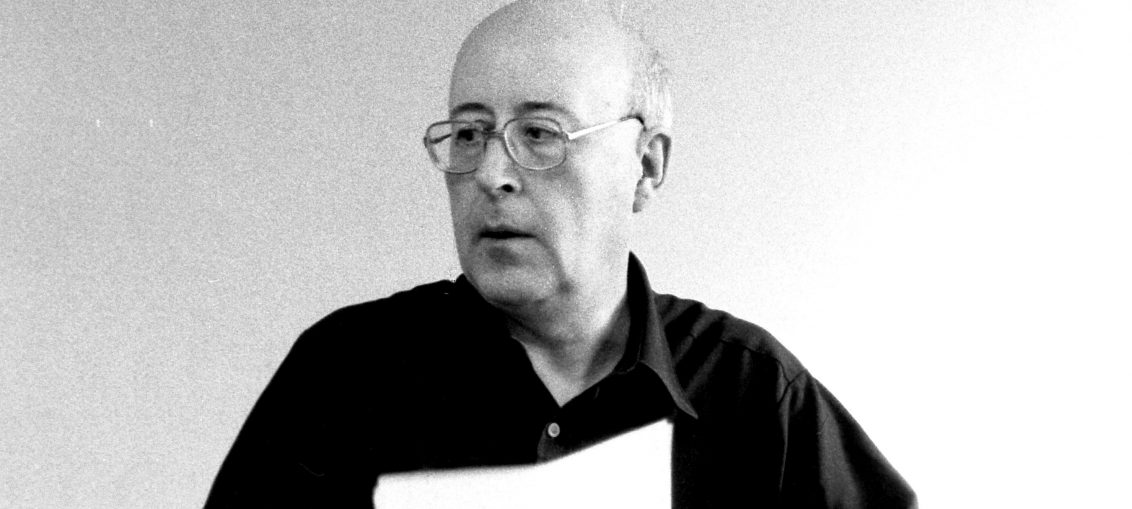
Colin Clemett in his role as Chair of the ITTF Rules Committee at the New Delhi 1987 World Championships (Photo: Malcolm Anderson)
m
Author of the book “London to London” to celebrate the 2012 Olympic Games, Personal Honorary Member of the International Table Tennis Federation and former member of the Swaythling Club International, now 94 years old, Colin Clemett has stepped down as Chair of the Table Tennis England Rules Committee.
Table Tennis England published the following tribute:
His decision represents truly the end of an era as his contribution to the sport, both domestically and for the International Table Tennis Federation (ITTF), goes back to the 1950s.
Colin said: “As a table tennis enthusiast with little or no talent as a player, I have found administrative work in the sport a satisfying way to pursue my interest, and I am very grateful for the opportunities this has given me to meet and make friends with other enthusiasts both in England and around the world.
“During my 70 years’ involvement I have seen table tennis progress from what was largely a minority pastime to a well-organised and respected Olympic sport, and it is a privilege to have been able to play a small part in this development.
“I wish all my table tennis colleagues and friends continued enjoyment and success and I will continue to follow their activities with interest.”
Reflecting his longevity, Table Tennis England Chairperson Sandra Deaton said: “I personally cannot remember a period of time in English Table Tennis when Colin was not involved.
“He has been the guiding light for all our rules and regulations over a number of decades as well as maintaining an international standing.
“His ability to determine the appropriate statute to enable the implementation of the sport at every level is second to none.
“Even as he has moved on throughout the years he has continued to support and implement the necessary rules with his wisdom and immense understanding.
“Just to say thank you Colin is not enough. English table tennis will remain forever indebted to him and will miss him immensely.”
Fellow Rules Committee member and Chair of National Council, Estyn Williams, added: “Colin held very few physical meetings of Rules Committee. His preferred way of working was to provide a draft and invite comments from the other committee members.
“In the days before Zoom this approach saved Table Tennis England having to pay travelling expenses. The method worked because he was a master of clarity and precision. He was very easy to work with and welcomed constructive criticism.”
Colin served on the Rules Committee from 1958-63 and again from 1998 to the present – as Chairman since 2007. He also served on the Technical Officials Committee for some 58 years continuously until his retirement in 2017.
He said on that occasion that his most satisfying achievement was his redrafting of the Laws of Table Tennis in 1975 to integrate those relating to singles and doubles play.
Colin joined the Umpires Committee, as TOC was known, in 1957 and took on the Secretary’s role in 1959, having previously qualified as a County Umpire in 1952 and a National Umpire (No 9 on the list) in 1956. He went on to qualify as the third National Referee in 1971.
For the ITTF, he was Secretary of the Rules Committee from 1969 to 1973 and Chair from 1973 to 2003. He was responsible for the introduction of the International Umpire and International Referee qualifications, editor of the Handbooks for Match Officials and Tournament Referees. In addition, he was the Technical Delegate at the 1992, 1996 and 2000 Olympic Games as well as at the 1999 African Games and the 2002 Commonwealth Games in Manchester.
Colin also played a key role in the transition from the ETTA to Table Tennis England, redrafting the Articles in the wake of the 2013 Portas Report which signposted changes needed in the sport to guarantee Sport England funding.
Estyn Williams added: “The Portas report in 2013 required a complete redraft of TTEs Articles from which he produced a draft which was approved by the Board (and later an EGM) with minimal amendments. Although there have been a few amendments in the last 10 years the main structure of the Articles remains as he wrote it.”
